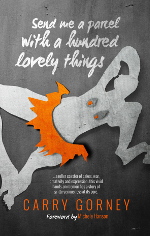What happens when we can’t write? When the ability to write abandons us? How can we make sense of this and explain the not-writing periods?
Selective mutism is a response to trauma where people stop speaking (Celie, the heroine of Alice Alice Walker’s novel The Color Purple is rendered mute by the abuse she suffers, eventually writing helps her break the silence). Harriet Shawcross explores the phenomenon of selective mutism in her book Unspeakable, part memoir, part investigative journalism. It happens all over the world.
Yet when writing isn’t happening it’s called Writer’s Block which suggests an external wall rather than an internal response to the inexpressible. Anais Nin, the 20th century feminist diarist said:
We write to taste life twice, once in the moment and in retrospect.
so it seems to make perfect sense that we should not want to taste out trauma twice and that writing would desert us in order to protect us.
There have been two significant periods in my life when I couldn’t write – in my teens and just the last few months (slowly now the ability to write in coherent sentences is returning, but not yet the ability to write story). Both times it was after a major trauma. Yet each time I felt frustrated because the very means by which I make sense of the world and process experience had deserted me.
Having been a journal writer since I could make marks on the page, it was extremely distressing to have a period in my teens when I could not write—I
literally could not write—a neurological event utterly disrupted my mental and physical processes. The re-learning was slow. I was unlanguaged and felt cut off from my very self when I could not write.
(Thompson K. & and Wright J. 2015 Honoring Silence in Adams & Thompson (eds)Expressive Writing Counseling and Healthcare: Rowman and Littlefield)
I see over and over again that some clients who have suffered childhood abuse find it possible to write before they can speak about it. But this is a slow and tender process, one that must be broken down into small and contained parts. Traumatic memories are stored in the non-verbal parts of the brain and restoring the narrative requires access to words.
Prompt: If writing has become hard or seems to have disappeared then remember that one word counts, that a phrase or an image contains much more than itself. So, write the word and without context. Do not try to put it into a story. Do not yet try to tell the story of your trauma. Story time will come later. And for once, do not re-read, do not reflect, leave your marks on the page and come back to them when time has passed.
Above all, be gentle with yourself.






